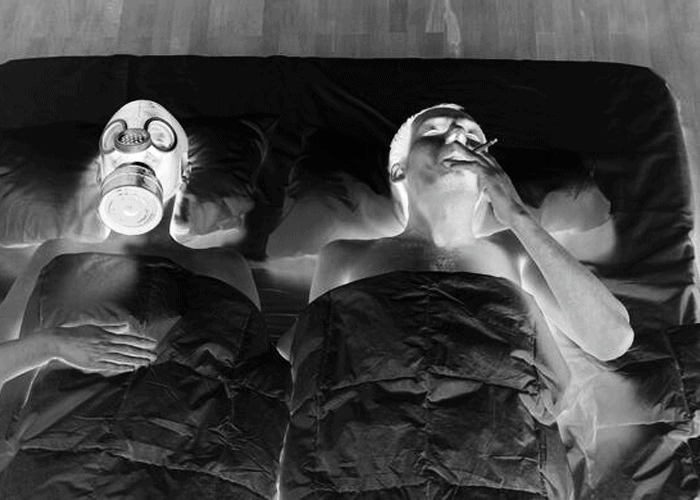Is nicotine keeping you awake? Using nicotine can help people stay alert by giving them a rush.
Does Nicotine Keep You Awake?
Yes, nicotine affects your body and keeps you awake. It interferes with your nervous system, causing issues with your sleep and sleep patterns. Nicotine works as a stimulant, which is why these issues arise. Stimulants increase alertness and mask tiredness by changing neural activity.
What are the effects of Nicotine on sleep?
Nicotine can affect your sleeping habits in different forms. Here are some of the main ones:
Sleep Apnea
Studies have shown that one of the significant effects of nicotine is sleep apnea. Sleep apnea is a sleep problem that happens because your breathing gets obstructed when you sleep. As a result, your body will wake itself up, which you may or may not even notice.
According to the studies, smoking causes sleep apnea by affecting your airways. It constricts the airways, resulting in poor airflow. It causes sleep apnea which in turn causes many different sleeping issues among people who take nicotine.
Waking Up While Sleeping
We’ve discussed that nicotine causes sleep apnea which causes us to wake up. But even without sleep apnea, nicotine can cause you to wake up while sleeping. It happens because nicotine binds to the receptors in our body and our brain. When this happens, it induces the release of dopamine from the receptors.
Dopamine promotes alertness and responsiveness in the body, causing our body to wake up even when sleeping.
Moreover, the effects of nicotine on our receptors dissipate quickly. And when this happens, the body begins to crave more nicotine. Thus it becomes a vicious cycle which is the main reason why nicotine is very addictive.
Tiredness While Awake
Daytime tiredness with nicotine can come directly and indirectly. It comes directly among people who are taking nicotine or are recovering from an addiction. As such, when you face withdrawal symptoms, it can keep you awake at night. As a result, you are tired throughout the entire day.
Again, daytime tiredness comes to you through sleep apnea which is a problem caused by nicotine. When you have sleep apnea, your body constantly wakes itself, and you do not get sufficient sleep. Your body has not recharged itself through the night. And as a result, you are tired when you are awake.
Difficulty Sleeping
Another effect of nicotine is difficulty falling asleep due to anxiety and stress. These issues happen during withdrawal and even when you are an active nicotine user. When the nicotine wakes you up to satisfy cravings, your sleep cycle gets ruined. With a dysfunctional sleep schedule, your body naturally will build up a lot of anxiety and stress. In turn, increased anxiety prevents your body from relaxing and falling asleep.
Disrupting REM Sleep
REM (Rapid Eye Movement) sleep is that stage of sleep where we get a lot of rest and recovery. Nicotine can disrupt REM sleep by causing sleep apnea, withdrawal symptoms, and interacting with different hormones in the body. All of which cause us to develop issues with staying asleep and falling asleep.
So, when REM sleep is affected, our body becomes severely fatigued. This sleep deprivation also compromises our immunity and makes us susceptible to different illnesses.
How Do You Sleep After Taking Nicotine
Here are some things you can do to help with sleep after taking nicotine:
Drink Water
Lung Institute recommends adopting a daily intake of 64 ounces or about 2 litres of water. As nicotine is water-soluble, water can help remove it from your body through excretion. With more water in your system, your liver will be able to break down the nicotine better. Then you’ll either flush it out through urine or sweat.
Exercise
Exercise can aid the removal of nicotine in your body by allowing you to sweat more. It also encourages you to increase your water intake. Plus, exercise can not only help you sleep better but also help manage symptoms of nicotine withdrawal.
A study shows that exercising for about 50 minutes can help you with cravings and anxiety. Even 10 minutes of exercise proved to be beneficial in helping with sleep and overall body functions.
Take Antioxidants
A study shows that foods that are rich in antioxidants help your body remove nicotine quicker. Antioxidants are known to help flush out harmful chemicals and free radicals from your body. Antioxidants like vitamins a, c, and e are the most common ones found in our food and some herbal teas. Some antioxidant-rich foods include:
- Blueberries
- Dark Chocolate with at least 85% cocoa
- Kale
- Carrots
- Spinach
Take Supplements
Some supplements like tryptophan help regulate withdrawal symptoms of nicotine. A study shows that the hormone supplement induces the production of serotonin. The serotonin is then converted to melatonin by our body, which helps regulate sleep in our body.
If you are interested in tryptophan supplements, contact your healthcare practitioner. It is best not to take them on your own without adequately assessing your body.
Besides supplements, tryptophan can be derived from food items as well. Look for foods that contain L-tryptophan; some of them are:
- Dairy Products
- Nuts and seeds
- White meat like fish and poultry
Avoid Alcohol
You should altogether avoid alcohol if you use nicotine. Some people may find that alcohol makes them tired. However, the combined effects of alcohol and nicotine cause lots of health complications and risks besides sleep issues.
Moreover, alcohol may make you slightly drowsy, but it interferes with REM sleep by suppressing it. When that happens, you will linger in and out and sleep, and your body will not get the rest it needs.
Conclusion
Nicotine causes many health problems, and one of them happens to be sleep issues. Most people might not understand the importance of sleep and might take it lightly. However, it is closely linked to essential functions in our body. Not getting proper sleep can lead to a lot of health problems as well.
If you are suffering from nicotine addiction or a smoker, avoid smoking before bed at all costs. You can also seek professional help to manage smoking habits and withdrawal.

 Nectar Mattress
Nectar Mattress 


